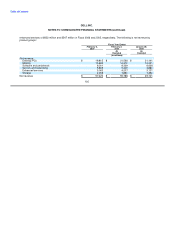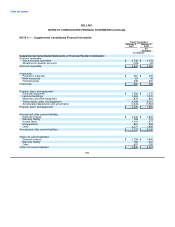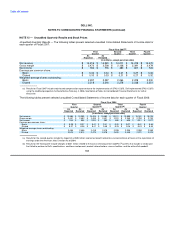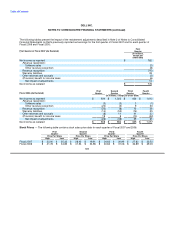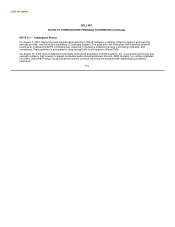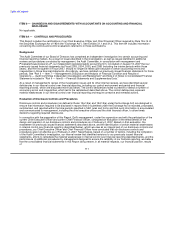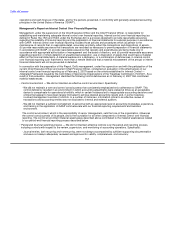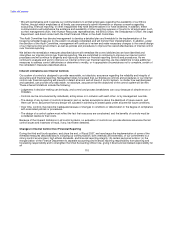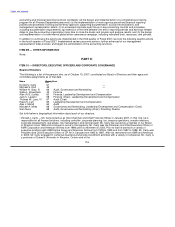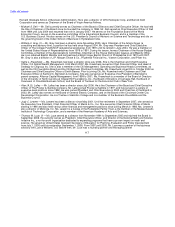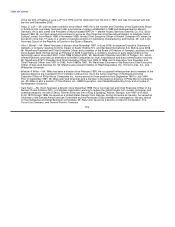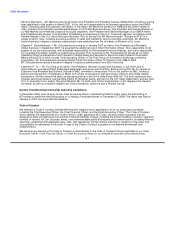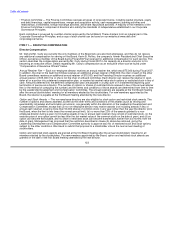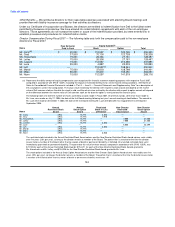Dell 2006 Annual Report Download - page 118
Download and view the complete annual report
Please find page 118 of the 2006 Dell annual report below. You can navigate through the pages in the report by either clicking on the pages listed below, or by using the keyword search tool below to find specific information within the annual report.
Table of Contents
• We will reemphasize and invigorate our communications to all Dell employees regarding the availability of our Ethics
Hotline, through which employees at all levels can anonymously submit information or express concerns regarding
accounting, financial reporting, or other irregularities they have become aware of or have observed. In addition, these
communications will emphasize the existence and availability of other reporting avenues or forums for all employees, such
as their management chain, their Human Resources representatives, the Ethics Office, the Ombudsman's Office, the Legal
Department, and direct contact with the Chief Financial Officer or the Audit Committee.
The Audit Committee has directed management to develop a detailed plan and timetable for the implementation of the
foregoing remedial measures (to the extent not already completed) and will monitor their implementation. In addition, under
the direction of the Audit Committee, management will continue to review and make necessary changes to the overall design
of our internal control environment, as well as policies and procedures to improve the overall effectiveness of internal control
over financial reporting.
We believe the remediation measures described above will remediate the control deficiencies we have identified and
strengthen our internal control over financial reporting. We are committed to continuing to improve our internal control
processes and will continue to diligently and vigorously review our financial reporting controls and procedures. As we
continue to evaluate and work to improve our internal control over financial reporting, we may determine to take additional
measures to address control deficiencies or determine to modify, or in appropriate circumstances not to complete, certain of
the remediation measures described above.
Inherent Limitations over Internal Controls
Our system of controls is designed to provide reasonable, not absolute, assurance regarding the reliability and integrity of
accounting and financial reporting. Management does not expect that our disclosure controls and procedures or our internal
control over financial reporting will prevent or detect all errors and all fraud. A control system, no matter how well designed
and operated, can provide only reasonable, not absolute, assurance that the objectives of the control system will be met.
These inherent limitations include the following:
• Judgments in decision-making can be faulty, and control and process breakdowns can occur because of simple errors or
mistakes.
• Controls can be circumvented by individuals, acting alone or in collusion with each other, or by management override.
• The design of any system of controls is based in part on certain assumptions about the likelihood of future events, and
there can be no assurance that any design will succeed in achieving its stated goals under all potential future conditions.
• Over time, controls may become inadequate because of changes in conditions or deterioration in the degree of compliance
with associated policies or procedures.
• The design of a control system must reflect the fact that resources are constrained, and the benefits of controls must be
considered relative to their costs.
Because of the inherent limitations in all control systems, no evaluation of controls can provide absolute assurance that all
control issues and instances of fraud, if any, have been detected.
Changes in Internal Control Over Financial Reporting
During the third and fourth quarters, and since the end, of Fiscal 2007, we have begun the implementation of some of the
remedial measures described above, including (a) communication, both internally and externally, of our commitment to a
strong control environment, high ethical standards, and financial reporting integrity; (b) certain personnel actions; (c) the
reorganization of the Finance Department to separate accounting and financial reporting responsibility from planning and
forecasting responsibility and to strengthen the Chief Accounting Officer role, giving it direct and centralized responsibility for
all
115


